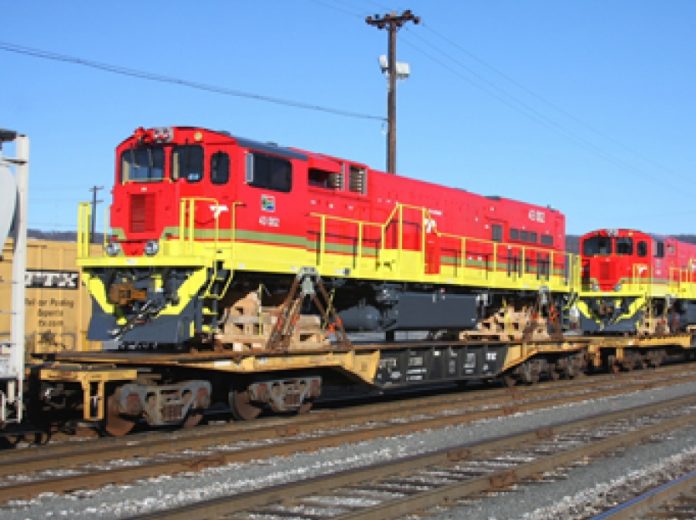This year’s U.S. Export-Import Bank Annual Conference featured a welcome discussion on accelerating export opportunities in Sub-Saharan Africa, the assumption being that U.S. companies are already late to opportunities in the region that is home to six of the world’s ten fastest growing economies.
In a surprise to many attendees, panelist Wayne Ramus, vice president of sales and project finance with GE’s Global Growth & Operations unit, counted GE among the latecomers, even though the company entered Africa as far back as 1898, when it opened an office in South Africa.
GE closed the office in 1985 in protest against apartheid and reopened it in 1995, after apartheid crumbled.
“GE recognizes that we, too, are late, and that is evident in the fact that our chairman, Jeffrey Immelt, has made two trips starting in 2012 to places like Nigeria and Ghana, signing memorandums of understanding with the governments to develop projects in the energy sector; transportation, more specifically the rail sector; the healthcare sector; and the water sector,” Ramus said.
The C-suite commitment to approach the continent with renewed focus and vigor, combined with hefty financial support from Ex-Im Bank, makes GE one of the most successful U.S. companies on the continent. Revenues from its sub-Saharan operations in healthcare, transportation, aviation, energy and oil and gas totaled $1,6 billion in 2011, up from $1 billion in 2006.
There are fundamental keys to GE’s success in Africa beyond a commitment to the market and Ex-Im support, Ramus confided. “Clearly we understand that there is a tremendous opportunity there and in our experience, to capitalize on that opportunity we need to do fundamental things,” he said.
Those “fundamental things” involve knowing your customer, knowing your customer’s needs, and providing financing.
You cannot get to know your customer without having a presence in the marketplace, Ramus affirmed. “That’s why we have people like Jay Ireland, who leads the Africa Initiative, based in the region; and that’s why we’re putting more and more GE people directly into sub-Saharan countries. We want to have that direct connect with the customers.”
A direct relationship with customers is particularly important, given the products that GE sells. These are primarily technology-based products that a company gets only a one-time opportunity to sell, such as a power plant, and all the add-ons that accompany them.
Knowing your customer’s needs is not as basic as it may sound, Ramus said. “By knowing your customer’s needs, we believe we need to come in with a solution. And the only way to solve a customer’s need is to be present locally – to not only be there to realize a contract and then a sale, but to be there for the long term.”
In selling a CT or MRI scanner to a hospital, for example, GE’s job is to go into the hospital to understand the clinical environment and medical needs of the patients, help the physicians to build the proper environment to house the scanner, install the scanner, make sure it is running properly to specifications, and go beyond that.
“We need to make sure that the operators are trained. We just don’t put a piece of equipment in place and then walk away from it. We’re there to help those operators be successful, help our customers be successful,” Ramus said.
Education and training for the various applications, long-term warranty and maintenance of the equipment are ongoing. “The point is, when we need to come in, whether it’s water, or energy, or health care, we come in there with a solution to solve our customer’s needs and be a partner with our customer for the long term,” Ramus said.
The third key element to success for GE’s projects in sub-Saharan Africa is the provision of financing. Many of GE’s projects are with customers who lack the funds to acquire capital equipment. That requires long-term financing of 10, 15, or 20 years. Even for the GE’s basic X-Ray equipment, customers are looking for extended payment terms of five to seven years, Ramus said.
“So part of our role is to come in with a solution, and then financing is critically important to the solution that will drive the customer. In many cases the transactions hinge on whether or not we are able to provide that financing support. That’s why we’re thankful to Export-Import Bank for having programs like the Medical Equipment Program,” he said.
Ramus has worked extensively with Ex-Im Bank financing and helped drive special bank initiatives, including its medical equipment program that enables seven-year terms for buyers.
Most recently, Ex-Im provided a loan guarantee of $9.5 million to enable the Water Treatment Technology and Chemical Company, Ltd., of Nigeria (WATTCCON) to purchase GE equipment to help build Nigeria’s biggest and most environmentally friendly industrial chlorine bleach plant in Kaduna, Nigeria.
Wattccon’s goal is to provide clean water to more than 300 million people in West Africa, some 170 million of them in Nigeria alone. The new plant will use a GE Cloromat technology system to manufacture high quality, high purity sodium hypochlorite, a disinfectant for potable water. By the end of this year, Wattccon will have Nigeria’s first 5-gallon water bottling franchise operating in 37 Nigerian city capitals, with estimated annual revenues of $20 million.
The Wattccon transaction earned GE Ex-Im’s 2013 Sub-Saharan Africa Exporter of the Year Award, which it received at the Ex-Im conference in April in Washington, D.C.













